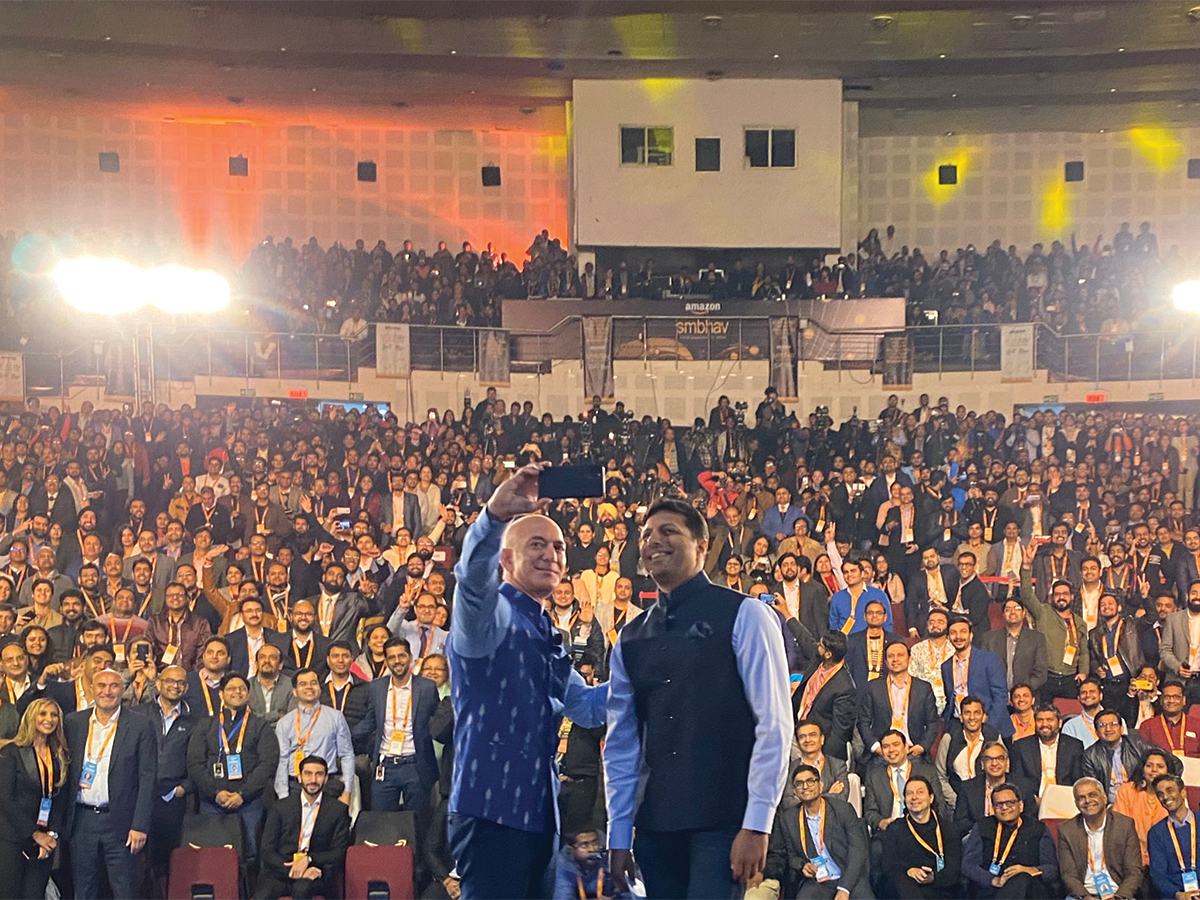
On Wednesday, Jan. 15, Amazon Founder and CEO Jeff Bezos announced that Amazon will be investing $1 billion to help digitize small and medium-sized businesses in India. While the audience at the Amazon Smbhav summit applauded Bezos upon hearing this commitment, the Confederation of All India Traders (CAIT), a trade group that represents around 70 million merchants, held protests across 300 cities in India against Amazon.
While Indian sellers are pushing for the government to rewrite and strengthen its e-commerce policies, Bezos appears to be hedging his bets in hopes that his social media posts of his tour around India and meager promises to invest are enough to silence the cries of his opponents. With a population of 1.3 billion people, India is a key market for Amazon. If the push to change Amazon’s business practices again succeeds, the company could see serious drops in profit.
Bezos’ announcement comes on the heels of the Competition Commission of India’s (CCI) opening of an anti-competitive investigation into Amazon and its rival, Flipkart. In 2016, New Delhi limited the two companies with a policy that forces foreign owned e-commerce firms to be neutral marketplaces; then, in 2018, the government passed regulations that also banned these foreign sites from selling goods from companies they own a stake in or have commercial arrangements with.
The CCI alleges that both Amazon and Flipkart have violated these policies by having preferred listing for its favored brands, which hurts and leads to the closure of non-preferred brands. Both have also been accused of deep discounting — a practice that disadvantages small and medium-sized businesses that can’t match such low prices.
The Indian e-commerce market is expected to grow to $200 billion by 2026, showing that there has been an exponential growth in online shopping among the general population of India. This is already concerning for small retailers, but with the inclusion of big firms like Amazon and Flipkart, they don’t stand a chance. In 2018, within six months, more than 50,000 small retailer shops have shut down across India, and CAIT largely attributes this to Amazon’s business practices. Bezos promised to rectify this by vowing to create a million jobs and facilitate exports of “Made in India” goods worth $10 billion via Amazon by 2025. Despite this, he was still met with a cold reception from Indian small business owners and reasonably so.
India is currently one of Amazon’s fastest-growing markets and it plays a large role in the company’s customer service and research operations. In 2018, Amazon India was worth $16 billion and it had a 30% market share that is poised to grow 23% annually until 2027. Amazon India would eventually reach $70 billion in gross merchandise volume and $11 billion in revenues. In 2019, during the six day period of Diwali alone, Amazon and Flipkart received just over $3 billion worth of orders.
In comparison to what Amazon makes from its Indian consumers, Bezos’ $1 billion investment into small and medium-sized businesses is extremely little. This investment is an empty gesture that he hopes will be enough to distract Indian business owners and the government. As large as Amazon is, opposition from the millions of small retailers still poses a problem because of the influence they have over the administration in New Delhi.
Over 130 million people depend on small scale retail; they make up the traditional voter base that supports the current prime minister, Narendra Modi, and his Bharatiya Janata Party. With reelection weeks away, right now is not the time for Modi to be making decisions that will anger one of his biggest voter bases. The prime minister has even turned down Bezos’ requests for an appointment, in what some speculate to be an attempt to save his own image.
If Bezos wants to continue making profit in India, something has to change on his part. Amazon needs to pull back its aggressive, dominating methods in the Indian e-commerce market or invest even more money in small businesses. If not, Bezos and Amazon could be facing big losses if their practices and struggling small retailers push the Modi administration to put more restrictions on foreign e-commerce firms.







